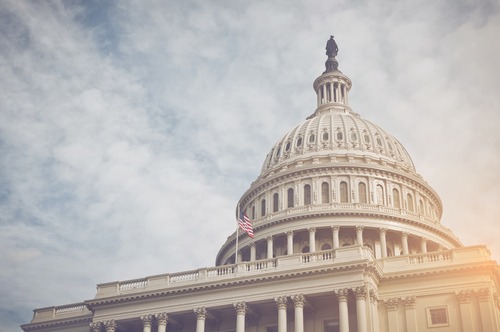
On Wednesday, a bipartisan $1 trillion infrastructure deal was reached, and the U.S. Senate voted to begin working on the legislation.
Calling the package a “once-in-a-generation investment,” the White House applauded the move, saying it will grow the economy, enhance our competitiveness, create good jobs, and make our economy more sustainable and resilient.
“The deal will create good-paying, union jobs,” the White House said in a statement. “With the President’s Build Back Better Agenda, these investments will add, on average, around 2 million jobs per year over the course of the decade, while accelerating America’s path to full employment and increasing labor force participation.”
Transportation groups applauded the deal as well.
“AASHTO applauds the bipartisan group of Senators and President Biden for reaching agreement on this historic bipartisan infrastructure bill,” said Jim Tymon, American Association of State Highway and Transportation Officials (AASHTO) executive director. “We recognize this long-sought agreement is a crucial demonstration of the solid bipartisan support for infrastructure investment including roads, bridges, public transit, passenger rail, ports, airports, safety, and resilience—as well as broadband, water, and energy systems. We are particularly grateful for the addition of $550 billion in new funding on top of the much-needed five-year surface transportation reauthorization bills passed with strong bipartisan support by the Senate Environment and Public Works and Commerce Committees.”
Among the deal’s provisions are $110 billion in new funds for roads, bridges, and major projects. The bill will also reauthorize the surface transportation program for the next five years. Additionally, the bill includes $11 billion in transportation safety programs, more than doubling funding directed to programs that improve highway safety, truck safety, and pipeline and hazardous materials safety.
The deal would invest $39 billion into public transit for modernization and improve accessibility for the elderly and those with disabilities. The investment represents the largest federal investment in public transit in history. The deal also makes a significant investment into passenger and freight rail. The deal would invest $66 billion rail to eliminate Amtrak’s maintenance backlog and expand rail outside the northeast and mid-Atlantic. The funding would give $22 billion to Amtrak, $24 billion in federal-state partnerships for modernization of the Northeast Corridor, $12 billion for intercity rail service grants, $5 billion for rail improvement and safety grants, and $3 billion of grade crossing safety improvements.
Paul P. Skoutelas, president and CEO of the American Public Transit Association, called the deal a “good start.”
“While we are greatly appreciative of the efforts of the White House and the group of Senate negotiators, we need to address the needs of the transit industry in the context of the imperatives of a 21st Century America,” he said in a statement. “Our nation needs bold investments in public transit to advance equity issues, tackle climate change and forge a new transportation direction which will serve our growing communities, build economic competitiveness, and position America as the world leader in sustainable mobility.”
Amtrak called for Congress to do more as well.
“We applaud the Administration and the group of bipartisan Senators for putting forward this historic level of investment in Amtrak and passenger rail,” Amtrak said in a statement. “If enacted, Amtrak will work to put these funds to use, rebuilding core infrastructure, replacing equipment and, with the FRA and state partners, bringing more Amtrak service to more people across the nation, creating thousands of new jobs and reducing America’s carbon footprint. While this funding is a fantastic start, we call on Congress to also ensure that Amtrak gets the on-time performance and preference from our host railroads that the law requires so we can achieve the growth in reliable service that our nation needs.”
Sen. Shelley Moore Capito (R-WV), ranking member of the Senate Environment and Public Works (EPW) Committee, said she intended on supporting the bill.
“As I said when I began negotiations with President Biden, I have been and continue to be committed to improving our nation’s infrastructure, which will boost economic growth and create jobs,” she said in a statement. “I am glad to see the bipartisan group’s infrastructure legislation focuses on the core elements of infrastructure. Just as important, the bipartisan group’s package is built around our two bipartisan and unanimously committee-passed bills. The inclusion of our bills in the package means West Virginia will receive funding for programs and areas I have long-supported, like roads, bridges, water, and wastewater projects, construction of the Appalachian Development Highway System (ADHS), and more.”